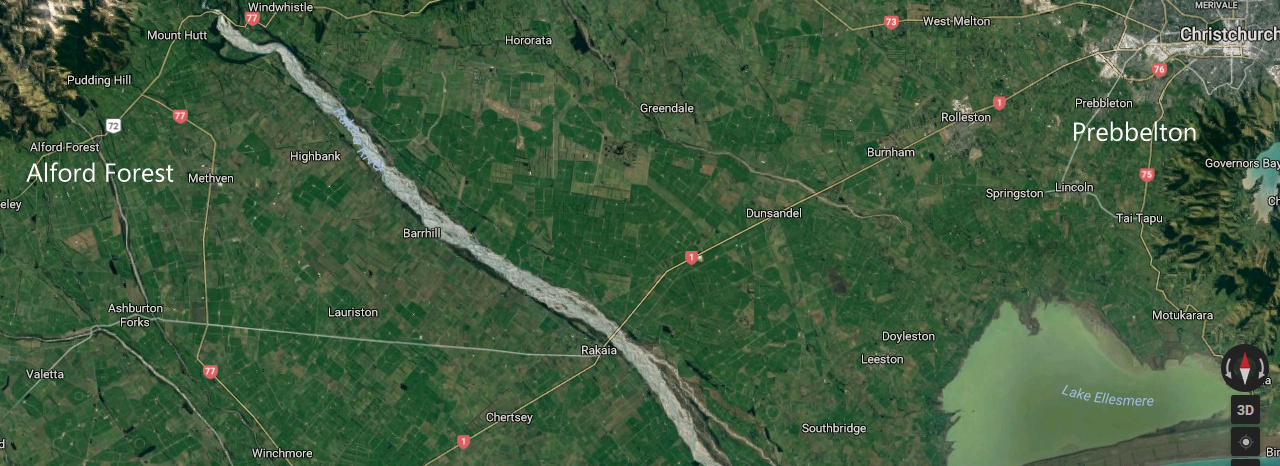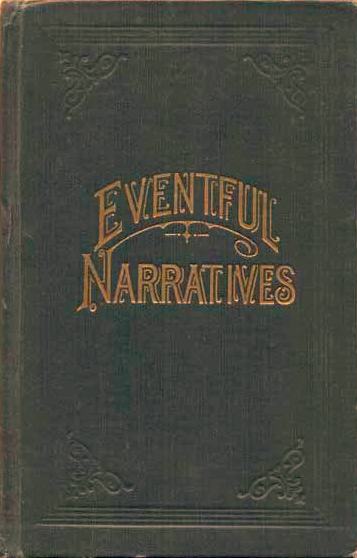Excerpts from
Juvenile Instructor - 1887
Written by Thomas A. Shreeve (1851-1931)
I remained in that region for a time, but could not find any opening; and therefore concluded to return to the South Island. At the time I greatly regretted the necessity for this step, for it seemed like a desertion of the field; but I was later led to thank God for the guidance of the Spirit for taking me away from the North Island.
It had been my purpose to obtain an opening among the Maories, and proclaim to them the gospel; but two weeks after my return to the South Island serious trouble broke out between the government and the Maori tribes which I had intended to visit on the west coast. This trouble continued for a considerable time, and during it, whenever my mind recurred to the subject, I thanked the Lord that I had been led away from that locality; because the people of that region would have been only too glad to attribute the Maori uprising to the "incendiary presence" of a Mormon Elder.
One day after my return, myself and a companion had been baptizing at Alfred Forest and it was our desire to reach Templeton as speedily as possible. We were very tired, having walked thirty-two miles that day, and we concluded to ride from Rakaia to Templeton, provided we had enough money for the purpose. We emptied all our pockets very carefully. I took especial care to feel in every corner of my clothing, and I gave all I had to my companion, who said that with his little stock this was barely sufficient to purchase the tickets. When we arrived at Templeton we learned that Brother Walker was quite ill at his home in a little town two or three miles distant.
When I arose to dress the next morning, I happened to put my hand in my vest pocket; and to my amazement I drew forth a half-sovereign in gold. How it came there I know not to this day: I was possessed of such a coin so infrequently in those days that I had certainly not placed it in my pocket and forgotten it; besides only the night previous at Rakaia I had searched my pockets carefully and had given every penny possessed to my fellow-laborer.
At the request of my companion, who was too weary to attempt the journey, I trudged down that morning to Brother Walker's house—although I myself had been so tired that I thought I could not walk a furlong. When I reached the house I found Brother Walker was indeed very sick; and that, owing to the confinement occasioned by his sickness, his business had been neglected, and his folks had been unable to leave him while they made collections of money due him, and they were for the moment in a very needy state, not having a penny in the house.
When I found the situation in which they were placed I said to Sister Walker:
"I have found a half-sovereign this morning, which came to me in some unknown way for some unknown purpose; and now I shall be glad to let you have it for your needs."
She thanked me, and told me that she would be grateful if I would hitch up their horse and drive over to Christchurch and purchase some bread and medicine. I did as she requested. I hitched up the horse and went immediately to Christchurch, a distance of three or four miles.
Arrived there I went to the baker's shop and asked for two shillings and sixpence worth of bread, giving the baker in payment my half-sovereign, or ten shilling piece. He gave me the proper change I am sure, because I watched it carefully. I placed this change of silver in the empty purse which I had in my hand, and then went to the chemist's shop. Here I purchased medicine to the amount of two shillings, and took that much money from the purse and paid the chemist.
Then I hastened back to Brother Walker's, and when I entered the house I gave the folks the bread and the medicine, and tossed the purse, containing as I supposed, five shillings and sixpence in change, to Sister Walker. She emptied the money into her lap, counted it, and then said:
"You did not pay for the bread and medicine which you got at Christchurch."
I replied that I had paid for them, certainly; because, being unknown to the baker and chemist, they would not have trusted me.
"But," she replied, "you have brought back ten shillings and four pence—which is more than you carried away with you."
I answered that I could not help that—I had certainly paid for the bread and the medicine and had received my exact change from the baker, who broke the money for me.
But whatever I might say, there was the money—four pence more than I had carried away, although I had spent four shillings and sixpence.
Some time afterward I was requested by Jeppe C. Jeppeson to go to Alfred Forest to perform for him and his family the ordinance of baptism. I was then at Prebbleton, and Alfred Forest was more than seventy miles away.
The second day of my journey I had thirty-two miles to travel on foot from the Rakaia River to Alfred Forest. My way lay for ten miles along the bank of the Rakaia; and thence along a level stretch for twenty miles, to the North Ashburton River. This I would be obliged to cross, and from the crossing to travel for two miles to the residence of Mr. Jeppeson. The Rakaia is a broad river flowing between high and steep banks.
The day was extremely hot, with a north-west wind blowing. This "north-wester" as it is called in that region is something like the desert simoon—it dries the sap out of everything. It is intensely hot and parching in its nature, and quickly enervates any person exposed to its influence. Especially is this the case with a person unaccustomed to the climate.
Whenever I wanted to moisten my lips I had considerable difficulty in descending to the stream and reascending the steep and high bank. But I was soon spared this annoyance; because when I began to cross the plain I found no water whatever. There was not a drop to be found for a stretch of nearly fifteen miles. Several times during this painful journey I lay down, feeling utterly exhausted; and once or twice I felt that death would be a relief.

